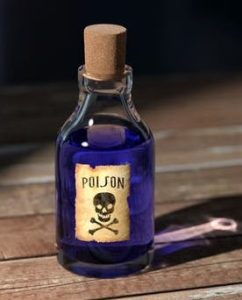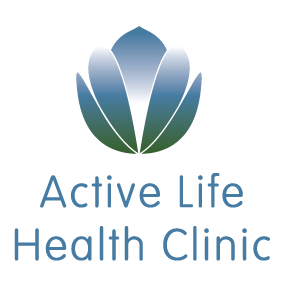 The September 2017 issue of BC Medical Journal (bcmj.org)—a magazine that “provides clinical and review articles written primarily by BC physicians, for BC physicians”—published a letter in the “Personal View” section about herbal medicine and liver toxicity.
The September 2017 issue of BC Medical Journal (bcmj.org)—a magazine that “provides clinical and review articles written primarily by BC physicians, for BC physicians”—published a letter in the “Personal View” section about herbal medicine and liver toxicity.
The letter reports on two patients who were transferred from local hospitals to the Liver Transplant Program of Vancouver General Hospital (VGH) for assessment and liver transplant because of acute liver failure. The patients were reported to be previously healthy, with one middle-aged and the other young. Though one was also on antidepressants, it was “strongly felt” that the cause of illness in both was the use of commercially-obtained herbal remedies—one was traditional Chinese herbal medicine and the other was traditional Indian herbal products.
The authors lament that “These two tragedies could have been avoided, and it behooves physicians to be aware of what nonprescription products their patients are consuming and the associated risks.”
They then assert that “Drug-induced liver injury from these products is not uncommon. In China, such injury from Chinese herbal medicine is estimated to be 25% of all reported cases (unpublished work from Dr Qi Xing-shun, General Hospital Shenyang Military District, 8 August 2017).”
Next, the letter authors state that they “strongly feel that regulation of these products, on either the federal or provincial level, needs to be consistent with that applied to the pharmaceutical industry” and that “the public needs to be made aware of the potential dangers of these products.”
I do agree with this letter on a few points.
- For those two patients who needed to undergo liver transplants, this was indeed tragic (though I might argue that that word is most often associated with death, and there is no statement that that is what occurred).
- It is absolutely important for medical physicians to ask their patients about their use of any herbal products or supplements.
- Just because a product is herbal or “natural” doesn’t mean that it is always safe—for everyone, in any dose, for any length of time.
However—and this is clearly the whole reason why I bother to write about this letter—there are several points that I hold issue with.
Firstly, while these two cases are important and may be reflective of a much larger issue, they are basing their letter on two cases, without giving any idea of whether there is a grander scale to consider. That is, is there truly a danger or might these have been isolated incidents?
What are not isolated incidents, are the adverse effects from proper use of pharmaceuticals, improper prescription of pharmaceuticals, and other medical errors. According to the Canadian Institute for Health Information and the Canadian Patient Safety Institute, in 2014-2015, “patients suffered potentially preventable harm in more than 138,000 hospitalizations in Canada.” That’s about 1 in 18 hospitalizations. And “of the patients who experienced harm, about 20% experienced more than 1 harmful event while in hospital.” (summary report: https://www.cihi.ca/sites/default/files/document/hospital_harm_summary_en.pdf; full report: https://www.cihi.ca/sites/default/files/document/cihi_cpsi_hospital_harm_en.pdf; technical notes: https://www.cihi.ca/sites/default/files/document/hospital_harm_technical_notes_en.pdf)
I don’t want to be alarmist. But those are numbers that stand out and should provoke a response. A letter reporting just two cases needs further elaboration.
Furthermore, using unpublished work from a Dr. Qi Xing-shun practicing in China (not in Canada), the authors of this letter state that damage to the liver from Chinese herbal medicine makes up about 25% of all reported cases. That makes it sound like 25% of people who take Chinese herbs end up with liver damage. That’s not the case. Assuming the 25% noted, but not published, by some Dr. in China is correct, we still have no idea of how many people that is. It’s like saying, “Nine out of ten doctors agree, this is the best toothpaste.” It sounds like 90% of all doctors. But it could be that 10 doctors were selected, and 9 of them like the toothpaste. In other words, if there were 8 total reported cases of injury from Chinese herbal medicine in China, then that would be just 2 liver-affected cases. Again, not noteworthy.
Even if the numbers are, in fact, noteworthy, let’s keep in mind that those are unpublished statistics from China, not here. And that brings me to my second point.
Herbal remedies—just like over-the-counter pharmaceuticals, alcohol, and even fibre powder—can be taken inappropriately. They may be taken in combination with other things that don’t mix well with them. They can be taken at dosages that are too high or for too long. They can be taken by the wrong person for the wrong reason. The Chinese herb ma huang (ephedra) is an example of that. The herb is not unsafe. In TCM, we prescribe its ingestion (combined with other herbs), mostly for opening the sinuses and getting rid of a cold. Unfortunately, people started taking it to lose weight. Wrong use. Wrong dose. Wrong duration of use.
 But you could say the same of alcohol use. Or of cough medicine, nasal decongestants, motion sickness pills, or narcotic painkillers used to get high. Or laxatives or diuretics used to lose weight. And, how many people have caused stomach ulcers because of overusing anti-inflammatory medications?
But you could say the same of alcohol use. Or of cough medicine, nasal decongestants, motion sickness pills, or narcotic painkillers used to get high. Or laxatives or diuretics used to lose weight. And, how many people have caused stomach ulcers because of overusing anti-inflammatory medications?
Specifically, when it comes to liver damage, Dr. Michael Rieder, a pediatric clinical pharmacologist at Western University states that acetaminophen is the “most common cause for liver injury. Period. Full stop.” Every year there are about 4500 hospitalizations in Canada caused by acetaminophen overdose, with approximately 700 of those accidental, according to Health Canada.
Dr. Yoshida himself, the lead author in this letter, “regularly sees patients with severe liver failure from accidental acetaminophen overdose.”
This is why I wonder about Dr. Yoshida et al’s word of warning to their medical physician colleagues that “the public needs to be made aware of the potential dangers of these [herbal] products.” The problem isn’t necessarily with the herbal remedy being dangerous. It’s the improper use that is the main concern. Just as we don’t need to be warned about the dangers potentially imposed by forks, though you could be seriously injured by one!
Of course, if a patient arrives at your office with four small, closely placed puncture wounds in his leg, you might consider that a fork was the cause. And you should ask.
In fact, health care providers should always ask our patients about their use of medications (both prescription and over-the-counter), recreational drugs, medicinal narcotics, alcohol, cigarettes, and herbal and supplement remedies. We should be specific and ask for details, not just, “Are you taking anything?” When I phrase the question that way, people often answer no. But, when I ask in more detail, they may say, “Oh, yes. I’m on the birth control pill.” Then, “Oh, that. Yes, I take a sleeping pill every night.” And, “Um, yah. The only way I can sleep is if I also smoke a joint.” So, yes, we should ask in detail.
And, we should remember that our attitudes will influence whether they answer us truthfully or not. I’ve heard time and time again from patients that they don’t tell their physicians about their supplements. I encourage them to do so, but they say that their docs will shame them and tell them they are wasting their money. Some patients have even told me they’re afraid that their doctors won’t even see them anymore.
In terms of having regulation of herbal products being on par with that applied to the pharmaceutical industry, I disagree. Some people wrongly think that the world of natural health products is like the wild west—anyone can sell anything with any claim. This is fully false. We already have good regulations in place. All natural health products on the shelves in Canada are required to have a Natural Product Number (NPN). From the Government of Canada website:
“All natural health products must have a product licence before they can be sold in Canada. To get a licence, applicants must give detailed information about the product to Health Canada, including: medicinal ingredients, source, dose, potency, non-medicinal ingredients and recommended use(s).
Once Health Canada has assessed a product and decided it is safe, effective and of high quality, it issues a product licence along with an eight-digit Natural Product Number (NPN) or Homeopathic Medicine Number (DIN-HM), which must appear on the label. This number lets you know that the product has been reviewed and approved by Health Canada.”
If anything, patients can be informed to make sure that any of the natural health products they buy are either from a qualified and licensed health professional or that the product has an NPN. Where did those two liver patients get their herbal products? That’s the question I would ask.
Rather than try to scare medical doctors into scaring their patients away from all herbal products, let’s try to educate ourselves about them. Let’s tell our patients to talk to the right type of healthcare provider when it comes to the remedies they are taking. Traditional Chinese Medicine practitioners (for Chinese herbs in British Columbia, that’s Dr.TCM, R.TCM.P., or R.TCM.H.) can make sure the herbal medicine is prescribed appropriately.
I work in an integrative clinic with medical physicians as part of the team. We fully respect and appreciate each other’s knowledge, skills, and type of practice. And, it was one of those medical physicians who alerted me to this letter in the BC Medical Journal. He told me, “this is what MDs are reading” because he wanted me to respond in a clear fashion that could inform both my TCM and other natural health colleagues, and perhaps help inform medical doctors as well, so we could all work together. With the facts. And with patient interest at the forefront.
While fear might provoke action faster than any other emotion, it doesn’t help us in the long-run when it comes to our health care system.
And, here’s the shortened version they posted on their website: http://www.bcmj.org/letters/understanding-herbal-medicine-and-liver-toxicity
